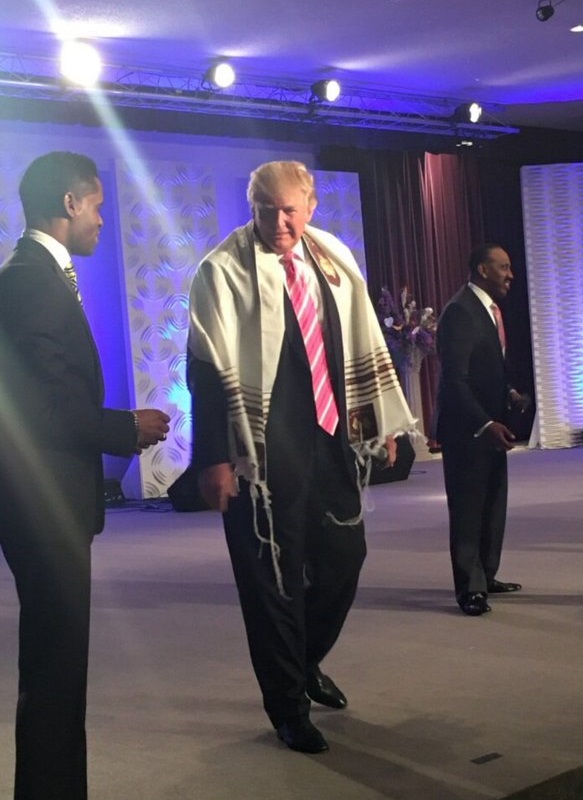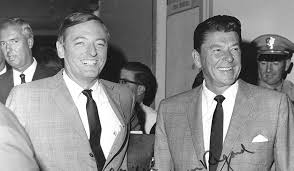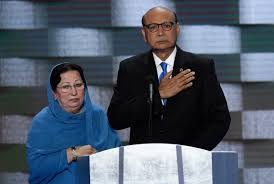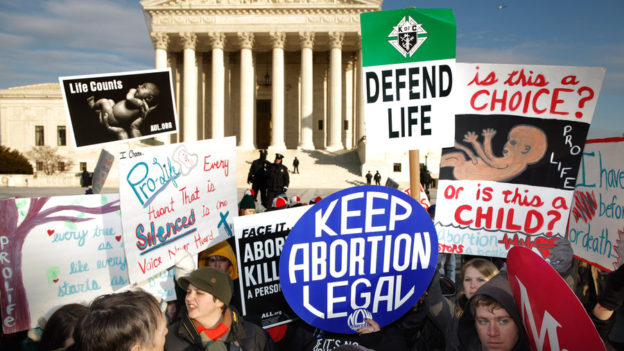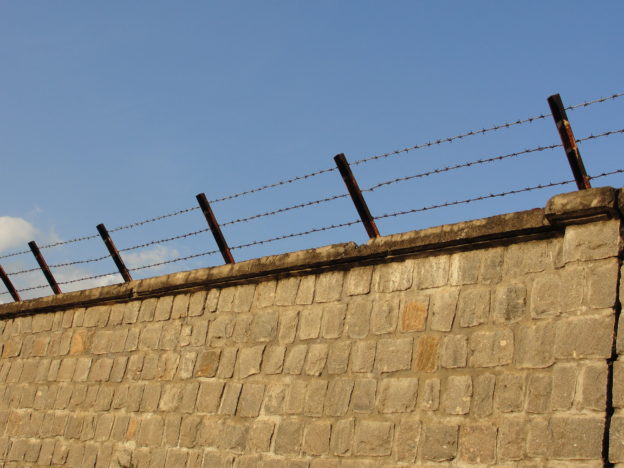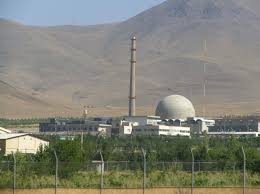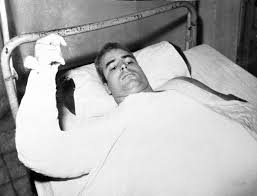The image was, to be sure, jarring: Republican presidential candidate Donald Trump being draped in a tallis.
By an African-American pastor.
In a Detroit church.
To resounding applause.
Bishop Wayne Jackson of the Great Faith Ministries in Detroit effected the atifah while most of us were listening to the Krias HaTorah of Parashas Re’eh, after the candidate addressed the minister’s congregation in an attempt to garner votes from a segment of the population not naturally supportive of his candidacy.
“Let me just put this on you,” Pastor Jackson said, identifying the garment as a prayer shawl “straight from Israel,” and The Donald, although he did look a mite befuddled, didn’t resist.
The congregation was effusive in its praise of the spectacle. Some Jewish media, clergyfolk and armchair pundits, though, considerably less so.
Some took the humor route, like writer Yair Rosenberg, who speculated that “Trump was finally embracing his role as a fringe candidate.”
Others, though, were outraged at, as several described it, the “cultural misappropriation.”
One commentator called it “sacrilege” for Mr. Trump, a non-Jew, to dare to wear a “sacred garment of Jews.” Another, growing apparently increasingly apoplectic, could only comment: “The pastor just gave Trump a tallis from Israel. Which is just … no. Just no. No no no.”
Reform rabbi Ron Kronish, the founder and senior advisor for the Interreligious Coordinating Council in Israel, was appalled by the scene, which he described as “a totally absurd distortion of the meaning of an important Jewish ritual object, which is used by Jews for prayer all over the world.”
Nor could the rabbi resist the opportunity to denigrate Mr. Trump (ignoring the candidate’s karka olam passivity throughout the tallis-donning, which was unexpectedly sprung upon him by the pastor), creatively suggesting that the tallis “is a symbol of humility before G-d” and that while he “would hope that Mr. Trump would not misappropriate this ritual object for his travels… with this megalomania [sic] almost anything is possible.”
Conservative rabbi Danya Ruttenberg huffed that “A Jewish prayer shawl… is a ritual garment. Meant to be worn only by Jews. This is the worst kind of appropriation.”
And Modern Orthodox rabbi Seth Farber expressed his own great discomfort with the use of a “holy object” for “political purposes.”
Now, there is certainly something to be upset about when non-Jews utilize objects associated with Judaism to try to lure ignorant Jews away from their religious heritage. Tallisos, among other things, are routinely employed by missionaries to put a deceptive “Jewish gloss” on decidedly un-Jewish beliefs.
And the Detroit spectacle, too, in fact had distinct Christian overtones. While his victim was trapped in the tallis, Pastor Jackson offered him a second gift, two copies (one for Mrs. Trump) of something called the “Jewish Heritage Study Bible,” which includes distinctly Christian elements. The pastor also saw fit to quote from the Christian bible at that moment.
He, moreover, shared a distinctly un-Jewish description of a tallis, understanding it, apparently, as a good-luck talisman of sorts (over which, he explained, he had fasted and prayed) that, when Mr. Trump will wear it, will “lift you up.”
But the clergyman was not aiming his act or comments at Jews, but rather at Mr. Trump and the congregation. The howls of outrage, I think, say more about the howlers than about the poor pastor or the recipient of his gifts.
The misappropriation of Judaism that more merits vexation is various Jewish clergy’s abusing holy pesukim to justify some of the most decidedly un-Jewish ways of life.
We might wince at bit, or even smirk, at appropriations of things like a tallis or menorah or yarmulke (a Jewish article that most every politician, at least along the coasts, has donned on countless occasions). But waxing indignant over such sillinesses bespeaks being overly sensitive – and insufficiently appreciative of the fact that, despite the dormant, and occasionally not-so-dormant, anti-Semites that infect parts of the nation, so many Americans value, even venerate, things Jewish, and Jews.
The reverend’s reverence for the tallis and his excitement over its Israeli origin – like the blowing of shofaros at civil rights rallies or Pesach “Sedarim” at the White House – should evoke not indignation but perhaps something akin to gratitude. Gratitude, that is, for Hashem’s allowing so many of us Jews to serve out our exile-sentence today in a place where we are not only not hated and hunted but actually, in some ways, appreciated, even revered.
© Hamodia 2016
